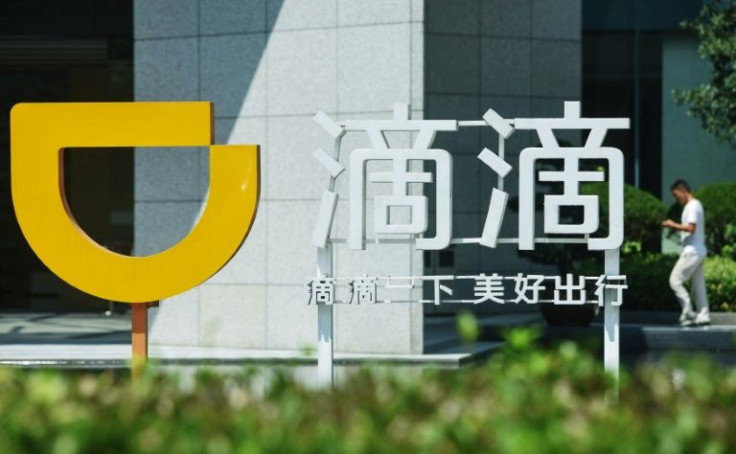Chinese Ride-hailing Giant Didi To Delist From New York Exchange
Chinese ride-hailing giant Didi Chuxing said Friday it would start the process of delisting its shares from the New York stock exchange and prepare a Hong Kong listing, shortly after US regulators adopted a rule that would allow them to remove foreign firms.
Didi's move comes in the wake of a sweeping Chinese regulatory crackdown in the past year that has clipped the wings of major internet firms wielding huge influence on consumers' lives -- including Alibaba and Tencent -- and just months after its mammoth New York debut.
"After careful consideration, (Didi) will start the process of delisting from the New York Stock Exchange from today, and start preparations for listing in Hong Kong," the company said in a statement on social media.
The ride-hailing firm's IPO in June was quickly overshadowed by an investigation by China's internet watchdog on the grounds of cybersecurity -- news that came just days after the listing that sent the shares plunging.
Didi -- which reportedly ploughed ahead with the US listing against instructions from Beijing -- has been hit especially hard by a state clampdown on tech companies.
It has dominated the local ride-hailing market since it won a costly turf war against US titan Uber in 2016, and its app claims to have more than 15 million drivers and nearly 500 million users.
But the month after the US listing its service was ordered off Chinese app stores.
Government agencies also launched inspections at its offices over "national security" fears, reportedly worried about sensitive data being leaked overseas.
Didi was "advised by Chinese regulators to get listed in Hong Kong rather than New York due to data security issues", said Angela Zhang, associate professor of law at the University of Hong Kong.
"However, Didi didn't listen and went ahead anyway, so the regulators taught the firm a hard lesson."
She said that, from now on, "all Chinese tech firms will take data security issues seriously".

Several US-listed China tech companies, such as Alibaba, have held initial public offerings in Hong Kong over the past two years as the United States has stepped up scrutiny of Chinese firms.
Listing in Hong Kong is seen as a hedge against the risk of being removed from US exchanges and a way of accessing an investor base closer to their home markets.
As well as domestic pressure, Chinese companies will face fresh scrutiny on Wall Street exchanges.
On Thursday, US market regulators announced the adoption of a rule allowing them to delist foreign companies if they fail to provide information to auditors.
The move is aimed primarily at Chinese firms, and requires them to disclose whether they are "owned or controlled" by a government.
Beijing gave an angry reaction to the rule, saying Friday it was "another example of US political suppression of Chinese enterprises."
"We urge the US side to ensure that they offer a fair and equitable environment for Chinese companies instead of putting up barriers," foreign ministry spokesman Zhao Lijian told reporters.
The delisting decision marks a costly blow to Didi, which had raised $4.4 billion in its New York IPO.
Didi's shares closed 0.13 percent down to $7.80 in its last trading session, compared with an IPO price of $14.
The firm is currently valued at around $38 billion, compared with the $77 billion when it listed.
Other tech firms listed in Hong Kong and the United States tumbled in the southern Chinese city Friday.
Alibaba and Tencent shed more than two percent, while JD.com dived six percent and NetEase listed 4.8 percent.
Kendra Schaefer, head of tech policy research at consultancy Trivium, said that the position of Chinese companies listed abroad is "increasingly uncertain".
"I think that what this indicates is that for the time being, the voices in the Chinese government that are focused on cybersecurity are much louder than the voices that are focused on cross-border trade and economics," she said.
© Copyright AFP 2024. All rights reserved.



















